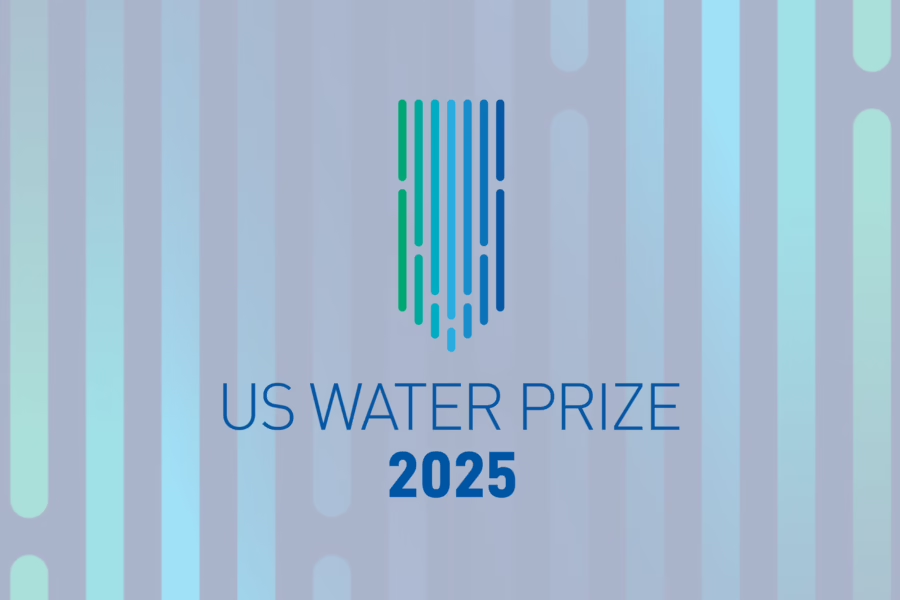Partnerships are key to addressing water quality challenges and implementing lasting solutions.
“Public-private and urban-rural partnerships are vital to implementing the Iowa Nutrient Reduction Strategy,” says Sean McMahon, executive director of the Iowa Agriculture Water Alliance (IAWA). “We are all in this together.”
Iowa continues to lead the way in building partnerships with a broad cross-section of stakeholders to improve water quality and create new economic opportunities. IAWA, in collaboration with the Iowa Soybean Association (ISA) and the Iowa Corn Growers Association, will lead a diverse, 30-member delegation to the One Water Summit 2017 in New Orleans, Louisiana, later this month. The delegation includes both expert and young farmers, city administrators, private companies, and other partners.
The conference, convened by the U.S. Water Alliance, will give the group a chance to share Iowa success stories and network with attendees from across the country to gather new ideas.
AJ Blair, a Dayton, Iowa, farmer and a representative of ISA and IAWA, will be among those attending the Summit and forging alliances to advance water solutions. “It’s not urban versus rural,” he says. “We’re all sitting at the same table shooting ideas to solve issues and do the best we can.”
As a member of IAWA’s Advisory Council, Blair hopes to expand his knowledge on outreach strategies, while furthering his collaboration skills. “One thing I want to get done where I live is a watershed plan,” he shares. “I’m not trained at working with other people to get things going. While I’m at the One Water Summit, I’m interested in attending seminars on social dynamics.”
Iowa played a very influential role in last year’s Summit, being the only state to send a strong delegation that included farmers and other agricultural experts. Among the 2016 attendees was Harry Ahrenholtz, chairman of Agriculture’s Clean Water Alliance (ACWA).
Ahrenholtz says the Summit gave him an increased appreciation of the possibilities for rural and urban collaboration with water quality issues. Upon returning to Iowa, he worked with ACWA to make this collaboration a stated goal of the group’s annual work plan.
“Last year’s Summit gave us some new ideas that we are now implementing,” says Ahrenholtz. “The ag-urban initiative is greater now than it was a year ago, and certainly much greater than it was two or three years ago.”
Tom Vincent is another IAWA delegate who is looking forward to creating multi-layered solutions. Vincent, a crop and livestock farmer from Perry, Iowa, recently installed one of Iowa’s largest saturated buffers next to a turn-of-the 20th century drainage ditch.
Vincent says he is looking forward to learning so that he can continue to set an example with further application of new, innovative techniques.
“I am excited to hear what will soon be developed and what we need to be thinking about for down the road,” he says. “It’s a huge opportunity.”
Attendees at the 2017 Summit will again have input into the national conversation on what it will take to secure a positive water future, including both urban rural interests. They will interact and network with some of the nation’s sharpest minds representing business, utilities, communities, research, environmental experts, and policymakers.
Jessica Turba, an executive officer in the disaster recovery division of Iowa Homeland Security and Emergency Management, says this opportunity to look at water quantity and quality challenges from different perspectives is a key benefit of the Iowa delegation attending the Summit. “It’s a unique opportunity to be in that kind of community talking about water,” she says. “Bringing together all the perspectives in one platform is unique and special to do.”
Reflecting on the strength of leaders coming together from many different parts of a community to address water challenges, Turba summarizes, “It’s not one little component, it’s the entire picture. We make more progress in water improvements when we deal with issues comprehensively rather than little pieces broken apart where those solutions tend to not be as effective.”
Follow the national conversation from the Summit online by following the #OneWater2017 hashtag on Twitter and following IAWA posts during the conference:
Twitter: @IAwateralliance
Facebook: IowaAgricultureWaterAlliance
Here’s a complete list of the Iowa delegation:
AJ Blair, owner and operator of Blair Farm LLC
Alex Echols, founding and managing partner of Ecosystem Services Exchange
Ben Gleason, sustainable program manager of Iowa Corn Growers Association
David Ausberger, owner and operator of Ausberger Farms
Donna Ramaeker Zahn, communications director of IAWA
Drew Kessler, senior scientist of Houston Engineering
Ed Thomas, director of regulatory affairs for The Fertilizer Institute
Georgia Vincent, owner and operator of Bunker Hill Farms, Inc.
Harry Ahrenholtz, chairman of Agriculture’s Clean Water Alliance
Jim Jordahl, director of programs and operations of IAWA
Kaitlin Little, program coordinator of IAWA
Kellie Blair, owner and operator of Blair Farm LLC
Larry Weber, director of the University of Iowa Flood Center
Lee Gravel, nutrient reduction strategist of Buena Vista and Pocahontas County SWCDs
Lori Beary, chief community development officer of Iowa Finance Authority
Mark Deutschman, civil engineer of Houston Engineering
Michelle Jones, environmental communications specialist of ISA
Mikayla Edwards, farmer of Iowa Corn Growers Association
Ray Gaesser, owner and operator of Gaesser Farms
Roger Wolf, director of Environmental Programs and Services for ISA
Sarah Feehan, communications intern of IAWA
Sean McMahon, executive director of IAWA
Shane Wulf, watershed project coordinator of Black Hawk SWCD
Steven Diers, City Administrator of Charles City, Iowa
Teri Goodmann, assistant city manager of the City of Dubuque, Iowa
Tom Vincent, owner and operator of Bunker Hill Farms, Inc.
This was originally published at the Iowa Agriculture Water Alliance blog.


